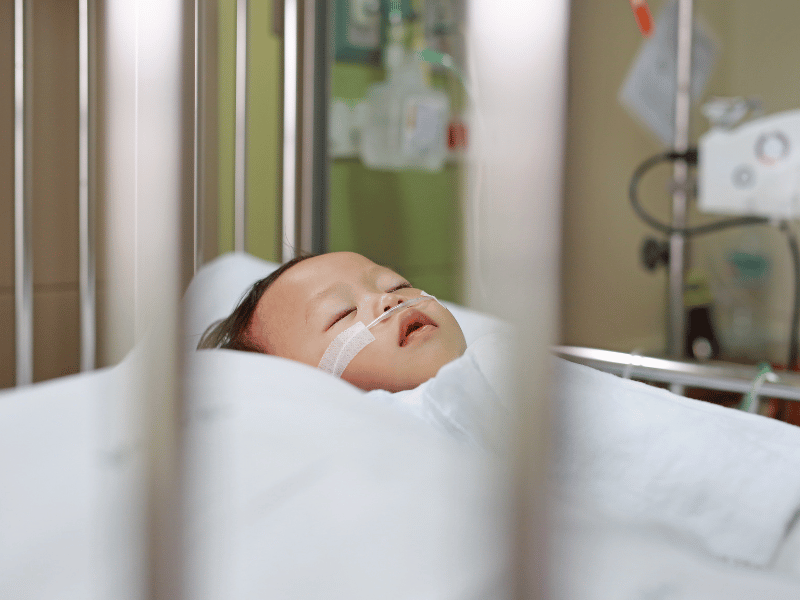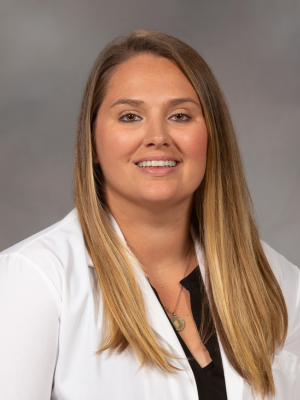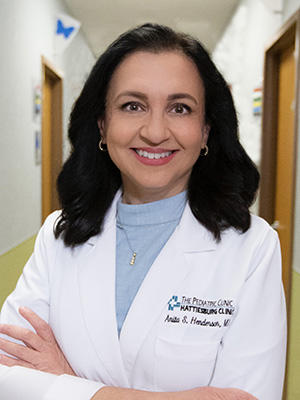Take steps to stop RSV’s spread in wake of drug shortage

With demand for a new RSV monoclonal antibody outpacing supply, experts recommend families take steps to reduce the risk of RSV infection.

“RSV is on the rise,” said Dr. Laura Wright-Sexton, assistant professor in pediatric critical care. “Younger kids, especially babies younger than 2 months old, are experiencing more severe disease and have the highest rates of admission to the pediatric intensive care unit.”
On Monday, 12 patients were hospitalized with RSV at Children’s of Mississippi.
Respiratory syncytial virus, or RSV, is a common respiratory virus that usually causes mild, cold-like symptoms. Most people recover in a week or two, but RSV can be serious for babies and older adults. The virus leads to about 80,000 hospitalizations with as many as 300 deaths among children younger than 5 each year, U.S. Centers for Disease Control and Prevention statistics show.
RSV is spread through droplets from coughs and sneezes and touching surfaces with the virus on it, such as a doorknob, and then touching your face before washing your hands. People with RSV are contagious for about three to eight days and can spread the virus a day or two before symptoms begin.
Even among children with no pre-existing conditions, RSV can be dangerous. Most babies who were critically ill with RSV in 2022 were full term and previously healthy, UMMC researchers reported in a study published in the Journal of the American Medical Association.
This year, parents have a new preventative measure to take against RSV. The U.S. Food and Drug Administration and the CDC’s Advisory Committee on Immunization Practices approved Beyfortus, a monoclonal antibody injection for newborns and infants during their first RSV season. The demand for the drug, also known as nirsevimab, has limited the supply, the CDC reported in a health advisory Oct. 23.
Current CDC statistics show that RSV is on the rise throughout the southeastern U.S. and is expected to increase in other parts of the country through the end of the year and into 2024.

“Pediatricians throughout Mississippi are seeing a significant increase in RSV,” said Dr. Anita Henderson, a pediatrician at the Hattiesburg Clinic and past president of the Mississippi Chapter of the American Academy of Pediatrics. “We are seeing an increase in RSV in both the hospital setting and in outpatient clinics. Pediatricians in Mississippi and throughout the country are frustrated by shortages, changes in ordering procedures and shipping delays, and some have expressed concerns over ordering private doses of this expensive monoclonal antibody, which costs about $500 per shot and may or may not be covered by insurance. Others have concerns over the equitable distribution of this medicine.”
Because of the Beyfortus shortage, the CDC recommends that immunization be prioritized for babies younger than 6 months who have underlying conditions that put them at higher risk for severe RSV.
The CDC recommends that doctors stop giving Beyfortus to children ages 8 months to 19 months since they are eligible to take Synagis, an older protective therapy. Unlike Beyfortus, which protects children for six months, Synagis is taken monthly.
Though Beyfortus is in short supply, UMMC experts say there are other options for lowering the RSV risk. They include:
- If pregnant, talking with your health care provider about Abrysvo, the first vaccine approved for use in pregnancy to prevent lower respiratory tract disease caused by RSV in infants from birth to 6 months. Abrysvo has also been approved for prevention of lower respiratory tract disease caused by RSV in adults 60 and older.
- Preventing RSV by covering coughs and sneezes with the inside of your arm and not your hands.
- Washing hands with soap and water for at least 20 seconds.
- Staying home when sick.


